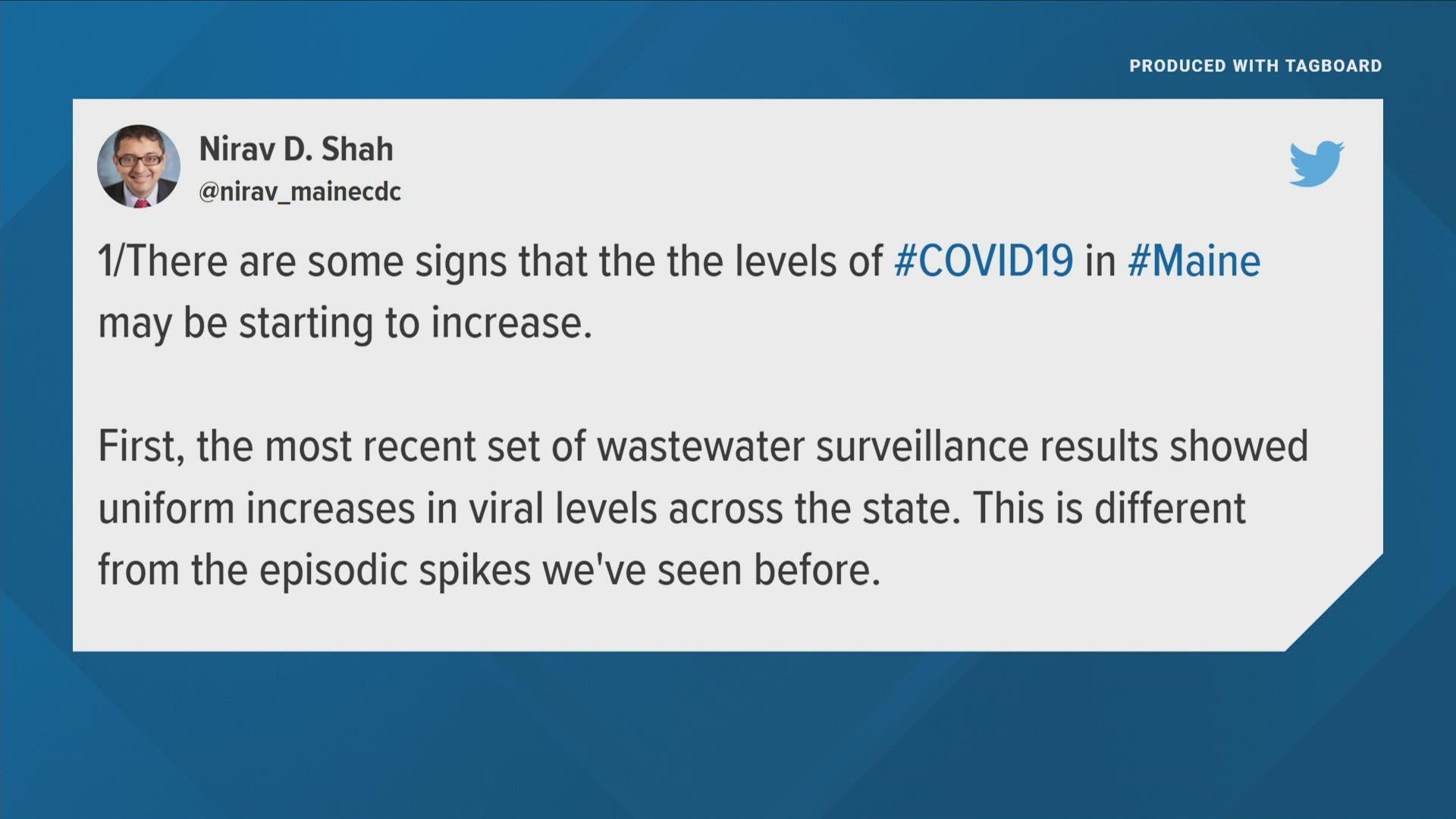AUGUSTA, Maine — Wastewater reports and hospitalization rates locally and in nearby areas such as Boston may be be mirroring an increase in COVID cases seen in the United Kingdom several weeks ago.
In a series of tweets Tuesday, Dr. Nirav Shah, director of the Maine Center for Disease Control and Prevention, encouraged Mainers to do all they can to prepare for an increase in numbers and make a plan in case they do catch COVID-19.
The most recent wastewater surveillance results showed "uniform increases in viral levels across the state," Shah said, in part.
And hospitalizations of people with COVID-19 are up from 91 people on March 23, 2022, to 104 people on Tuesday.
Shah noted that the number isn't close to the Jan. 13, 2022, peak of 436 people hospitalized patients with COVID-19, and added, "testing metrics do not show a measurable increase ... yet."
Still, the trends prompted him to ask, "What's going on?"
"It's too early to tell if these data points are signals or noise," he said.
"It surely seems like it's coming. It's kind of like Keith telling us what the weather's going to be like a week from tomorrow," Maine CDC spokesman Robert Long said of NEWS CENTER Maine Meteorologist Keith Carson. "He probably has a pretty good idea. As much as we'd love to see indicators that Maine is going to be spared, we weren't spared Omicron, we weren't spared Delta."
"People should act as if it's coming," Long said. "What that means is, get your booster. If you're eligible for a second booster, get that. Have tests on hand. And think about making a plan to get access to Paxlovid or some of the other therapeutics if you get COVID, because they are, by all accounts, amazingly effective at reducing your risk of getting really sick."
Long encouraged Mainers to take the time now to find out how to get access to antiviral medications and other treatments, so if they do get sick, they have a ready course to a treatment. He said doing so is particularly important for people who are older or with a compromised immune system.
"Call your doctor now and find out what to do to get them so you're not trying to figure that out when you're sick," he said. "And get your shots."
Long also reminded people who have tested positive for COVID-19 that if they are not experiencing symptoms, they can stop isolating after 5 days, "but from day 6 to day 10, wear a mask. That's not optional, and there seems to be some misunderstanding about that."

